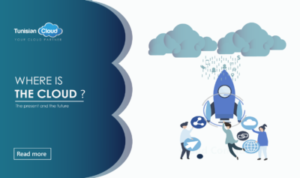[vc_row][vc_column][vc_column_text]According to the McKinsey Global Institute, an American worldwide management consulting firm with over 27 000 employees, between 400 million and 800 million of today’s jobs will be automated by 2030 [1].
Another study, projects that 1 million US jobs will vanish by 2026 [2], and without a doubt, these futuristic predictions are happening now.
From Automated factories fully run by robots, to jobs replaced by Artificial Intelligence and digital services online (paper work jobs are vanishing already), to the most recent google assistant that’s smart enough to make phone calls and predicted to replace many secretaries jobs in the near future, technology is NOW replacing work force.[/vc_column_text][vc_single_image image=”6370″ img_size=”full” alignment=”center” label=””][/vc_column][/vc_row][vc_row content_placement=”middle”][vc_column][vc_column_text]A worth mentioning example of how Artificial Intelligence is changing the world, is A.I.V.A (Artificial Intelligence Virtual Artist), it is an AI who composes soundtracks for films, video games, TV shows and commercials [3].
Here, you can listen to some music on YouTube! [4]
Not only industry and services jobs are in danger, but even artistic fields, now with programs like A.I.V.A who can compose music, and some programs from google that can reproduce paintings and even created a whole type of art called “inceptionism”, every human job is replaceable now.
The British economist John Maynard Keynes, was the one who predicted that machines will make life easier for us.
He even was afraid that by the end of the 20st century, we will have so much spare time that we won’t know what to do with.[/vc_column_text][vc_single_image image=”6372″ img_size=”full” alignment=”center” label=””][/vc_column][/vc_row][vc_row][vc_column][vc_row_inner][vc_column_inner][vc_column_text]To put it in a simple example, he said if a factory with 100 workers who work 12 hours a day bring a machine that does half the work, they will only work 6 hours a day.
Funny enough, the bright economist didn’t expect that factory owners will just fire half the workers and have 50 workers work 12 hours a day and a machine to do the other half of work.
Machine have already created millions of job and ended other millions, and one can only expect that the new technological advancements are going to do the same to millions of employees around the world.
True, the effect will not be that big, knowing that half the population of Earth is still offline, especially in the 3rd world countries, but as long as humans are getting connected, the effect will become to be bigger, year after year.[/vc_column_text][/vc_column_inner][/vc_row_inner][vc_single_image image=”6373″ img_size=”full” alignment=”center” label=””][vc_column_text]Sources:
[1] https://www.mckinsey.com/featured-insights/employment-and-growth/technology-jobs-and-the-future-of-work
http://fortune.com/2017/11/29/robots-automation-replace-jobs-mckinsey-report-800-million/
[2] https://www.cnbc.com/2018/02/02/automation-will-kill-1-million-jobs-by-2026-what-we-need-to-do-commentary.html
[3] www.aiva.ai
[4] https://youtu.be/HAfLCTRuh7U
[5] https://ai.googleblog.com/2015/06/inceptionism-going-deeper-into-neural.html
[/vc_column_text][/vc_column][/vc_row]

